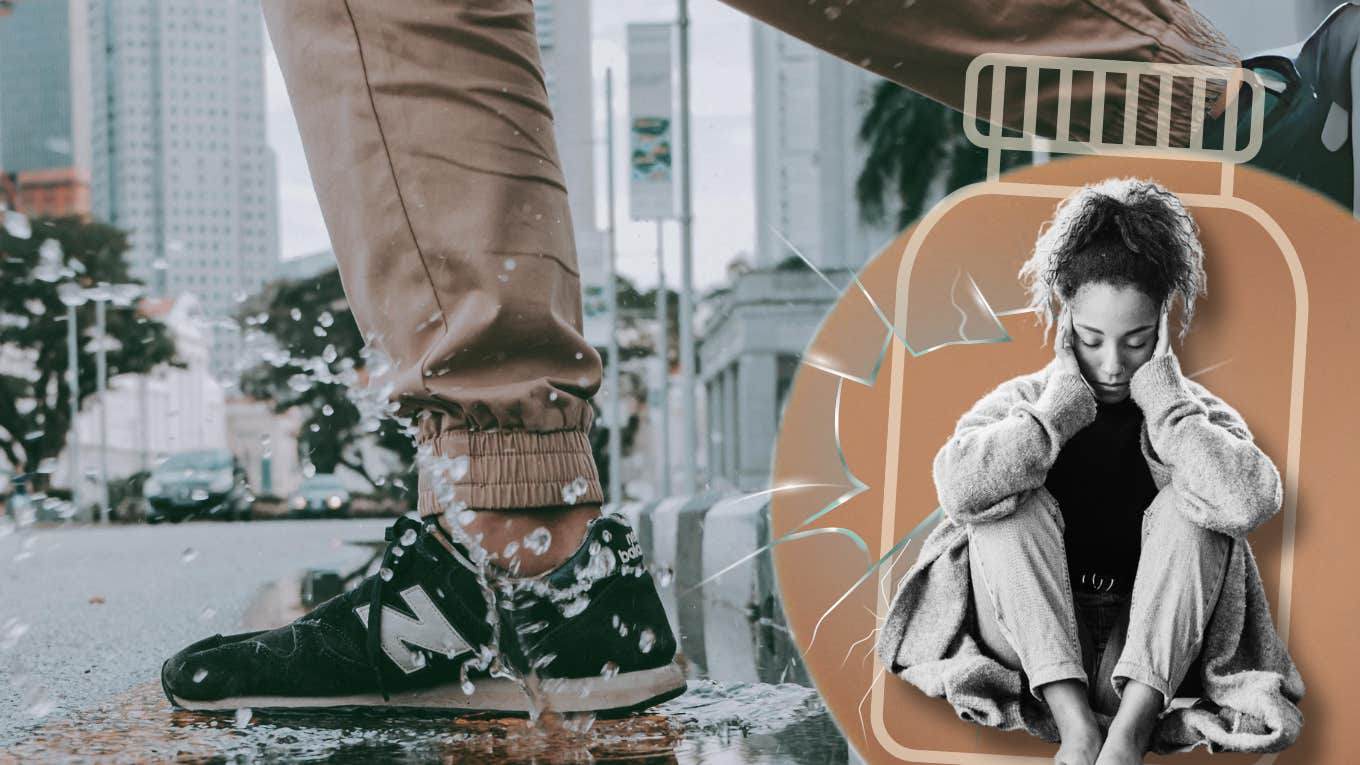The First Step To Breaking Any Addiction Once And For All
You can beat your addiction by taking this first step.
 Soulful Pizza, Pavel Danilyuk | Canva
Soulful Pizza, Pavel Danilyuk | Canva The brutal truth is that addiction is a very ugly thing. It consumes your mind and body until you're left feeling dependent. You keep telling yourself that you'll change, it's only a phase. Unfortunately, it isn't as simple as hoping for the best. It takes a lot more than that. You know better than anyone how hard (and incredibly painful) it gets. But you're not alone in this. We all have our addictions. Whether you're addicted to drinking or technology — whatever your vice is — you can overcome it.
Most people make promises to themselves at the beginning of the year, only to break them before the month is over. Don't let yourself become a statistic. What's the first step to breaking your addictive behavior? In today's age of technology and social media, it's plausible that we're all addicted to something. What people don't realize is how you can stop your obsessions from eventually wrecking your life.
To shed some light on this, we took this question to our experts. Authors John Gray and Charles J. Orlando, former Relationship Help Doctor Rhoberta Shaler, Shannon Rios Paulsen LMFT, and Jennifer Maddox LCSW discuss ways that you can you can actively fight this feeling. They stress that even if your situation seems bleak at the time, you can beat your addictive behavior. Jennifer Maddox raises an excellent point.
Addiction, she says, is essentially "The fever [of] reaching out for something. It's like going outside of yourself and not nurturing yourself. There's an imbalance in your system." We're constantly told by the media that there are easy fixes and hacks; they always claim that you can get rid of your addiction in just a few short steps. But the truth is that it's an ongoing process, as our experts stress time and time again. So if you're serious about ending your unhealthy practices for good, heed their advice. Don't let yourself be limited by all of your setbacks. No matter your addiction, there's always a chance to put yourself on the road to recovery. The question is are you ready to take that first step?
Drug and alcohol addiction is incredibly common.
The Substance Abuse and Mental Health Services Administration (SAMHSA) reports that approximately 20.3 million people above the age of 12 have suffered from a substance use disorder in the past year. According to SAMHSA’s 2018 National Survey on Drug Use and Health, close to 2 million people of the same age bracket have suffered from opioid use disorders and 14.8 million from alcohol use disorders.
Misusing alcohol and other drugs can be detrimental to your immediate and long-term physical, emotional, and mental health.
Alcohol and drug addiction is something to take seriously, although often overlooked. Anyone of any race, age, sexual orientation, religion, or gender can suffer from alcohol and drug addiction.
Recovering from an addiction is more than just abstaining from drugs or alcohol. It’s about investigating the internal framework of your brain, rewiring your thought patterns, and actively changing behaviors over a long period.
If you or someone you know is suffering from addiction, there are resources to get help.
The process of recovery is not linear, but the first step to getting better is asking for help. For more information, referrals to local treatment facilities and support groups, and relevant links, visit SAMHSA’s website. If you’d like to join a recovery support group, you can locate the nearest Alcoholics Anonymous or Narcotics Anonymous meetings near you. Or you can call SAMHSA’s National Helpline at 1-800-799-7233, which is a free 24/7 confidential information service in both English and Spanish. For TTY, or if you’re unable to speak safely, call 1-800-487-4889.
Charles J. Orlando is a relationship expert best known as the author of the acclaimed relationship book series, The Problem with Women… is Men. Dr. John Gray is a leading relationship expert whose books, including Men Are From Mars, and Women Are From Venus" have sold over 50 million copies in 50 languages in 150 countries. He helps men and women better understand and respect their differences in both personal and professional relationships. Rhoberta Shaler, The Relationship Help Doctor, provided urgent and ongoing care for relationships in crisis for more than 30 years. She was also the host of the Save Your Sanity Podcast. Shannon Rios Paulsen, MS LMFT is a Licensed Marriage and Family Therapist who has specialized in families of divorce and conflict since 2003. Jennifer Maddox is a Licensed Psychotherapist, a Reiki Master, a certified Conscious Connected Breathwork Facilitator, and an author.

